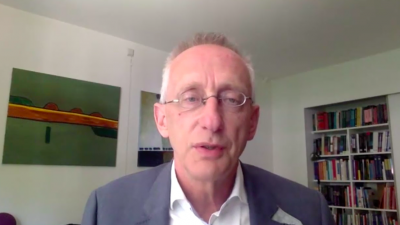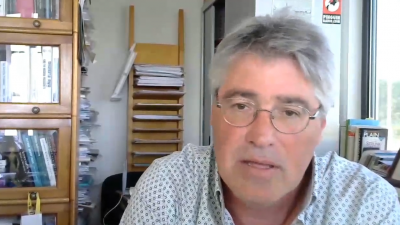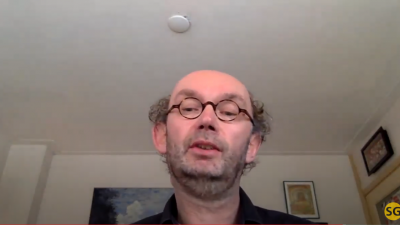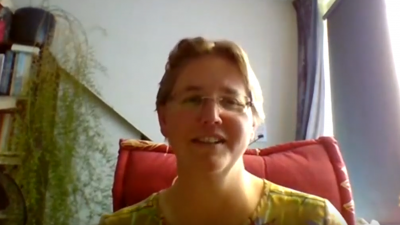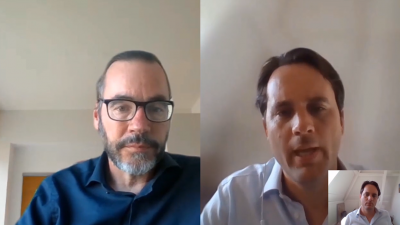Adapt!
The world is in a state of crisis: coronavirus crisis, climate crisis, economic crisis. Climate change causes society to suffer an increasing number of natural disasters, while the growth of polarisation generates a proliferation of isms: fascism, activism, radicalism, populism. Some countries are burdened by crises, though others bounce back stronger. It has never become fully apparent what constitutes the exact recipe for success – or disaster. Neither does academia currently have extensive knowledge about the way that societies deal with crises and the lessons that we can learn from these experiences.
The question remains, what is the recipe for success in those societies that thrive after a crisis? In order to answer this question, the research hub Security in Open Societies organised a series called 'Adapt! You can learn from crises'. Various researchers gave a series of six lectures to find out how we can bounce back stronger after this crisis.
The coronavirus crisis as a crisis of solidarity
The coronavirus crisis is unique, according to prof. dr. Arjen Boin, Professor of Public Institutions at Leiden University. Why? 'This crisis generates an increasing amount of insecurity', Boin explained in his lecture on Resilient handling of unprecedented dangers. "While you usually keep on learning during a crisis, this situation is not now the case. After all, we do not know how this crisis will end." COVID-19 is also framed as a crisis of solidarity: "Although only a tiny percentage of people fall ill, we are all expected to take action."

As a result, the coronavirus crisis encompasses a range of crises: a crisis of solidarity, an economic crisis for all companies bankrupted and people losing their jobs, as well as a health crisis. "National crises are normally scarce, let alone international crises, so we are now trying to put the theoretical crisis plan into practice for the first time," said Boin. In other words, this situation is a kind of stress test for government authorities and crisis protocols.
Justice as a cornerstone
While every crisis is unique, they share at least one common motif: we wish them to be over as soon as possible. This desire is not always realistic, however, least of all during the coronavirus crisis – which is here to stay for now. If the end is not yet near, how do we get through this period? Professor of Social Psychology prof. dr. Kees van den Bos explored this question in his lecture on How people deal with alarming circumstances. "It is striking that people cling to a sense of justice during times of crisis. Such justice means that you feel as though the decisions taken are fair, the policy established is fair and the scientists in charge are competent. As long as people have this notion, they can be at ease even in alarming circumstances," Van den Bos explained.
It is striking that people cling to a sense of justice during times of crisis
Most of us have neither the time nor the expertise to delve into tough policy papers and objective publications on the coronavirus in order to draw our own conclusions. "Instead, we turn to the people who do have this expertise. Especially in times of crisis, we want to know whether we can trust the government. Can I rely on its decisions, does it pursue a fair policy and are the scientists in charge competent?" asked Van den Bos. It is small wonder, then, that the Dutch government has tried to focus on effective communication about the coronavirus. A faceless institute such as the National Institute for Public Health and the Environment (RIVM) was personified by Jaap van Dissel, while politicians in The Hague openly solicited advice from the Outbreak Management Team, a highly visible group of scientists. These measures were intended to inspire trust.

"Nobody could have anticipated our obedience"
Many virologists had long predicted the coronavirus crisis, but it still took the world by surprise. Professor of Public Administration prof. dr. Paul 't Hart explored the management response to COVID-19 in his lecture. "While the pandemic itself was a surprise, it perhaps pales in comparison to the response by politicians and society," suggested 't Hart. In particular, he lauded the initial response by politicians and society: "Nobody could have anticipated our obedience and solidarity. As it turns out, we follow the rules. Few scientists would've believed prior to the pandemic that rules such as "wash your hands" could be imposed on Dutch society. However, this crisis has proved that people take little time to enter into a new social contract with each other as well as with the government. This contract involves listening to each other, believing the government and trusting the experts." The coronavirus crisis could be here for the long haul, however. In the words of Boin, it is a creeping crisis which drags on and seeps through everything. With this regard, 't Hart identified a number of lurking dangers: "The longer this crisis continues, the more we will need a different type of expertise which goes beyond the virus itself and tells us how to deal with it. To this end, academia is putting increasing pressure on politicians in the Hague to include historians and ethicists on its advisory team."
Nobody could have anticipated our obedience and solidarity. As it turns out, we follow the rules
It turns out that pandemics can be tamed after all
While historians, ethicists and philosophers do not possess the expertise to develop a vaccine against the virus, they can indeed offer advice based on their historical or philosophical knowledge. For example, what impression will this pandemic make on our history? In her lecture Pandemics can be tamed, professor of the History of International Relations prof. dr. Beatrice de Graaf explained that many of the past epidemics had a crucial influence on our way of maintaining international relations. "Pandemics cross boundaries. The paradox is that pandemics constitute our international relations and vice versa," De Graaf posited. "Historically speaking, there were really only two ways for these diseases to spread throughout and become pandemics: war and trade," De Graaf continued. After all, these moments are when an accelerated, intensive and especially uncontrolled melting pot of people emerges.

"The basic approach to pandemics that we now know only arose in the nineteenth century, during which three pandemics occurred," De Graaf described. In her view, people became more aware during this century that death and superstition are not always inevitable, but that this type of disaster can be tamed with the help of new scientific and logistic discoveries as well as expertise. "History teaches us that knowledge will allow us to prevail," De Graaf claimed. "But history also teaches us that cooperation can limit the extent of damage while the pandemic is raging," de Graaf continues. Cooperation means testing together, experimenting, contributing, sharing knowledge, withholding no facts. It also means combating inequality in the battle again the plague, the influenza viruses or the current coronavirus.
No cultural identity without crises?
Crises also make a key contribution to identity formation within a country, culture or population group. 'Dutch identity can only be understood properly with a thorough analysis of disaster history', explained prof. dr. Lotte Jensen, who is a professor of Dutch Literature and Culture at Radboud University. "Flooding is especially relevant to the Netherlands; just consider the saying "God created the Earth, but the Dutch created the Netherlands.'" In her lecture, Jensen reflected on the effects that disaster have on the cultural identity formation of a country, a nation or a group. "Many people resort to telling stories during disasters. For example, the disaster is converted into a victory story. The same is true for the coronavirus crisis, such as in the phrase "Together, we can keep the coronavirus under control". This narrative returns time and again. It has also generated new role models, however: care workers, virologists, sign language interpreter Irma Sluis." In order to understand a country's cultural identity, we have to consider the disasters and crises that it has overcome. During these moments, the core structure of a culture is created, to which we can return if a new crisis emerges or if there is a threat to our unity.
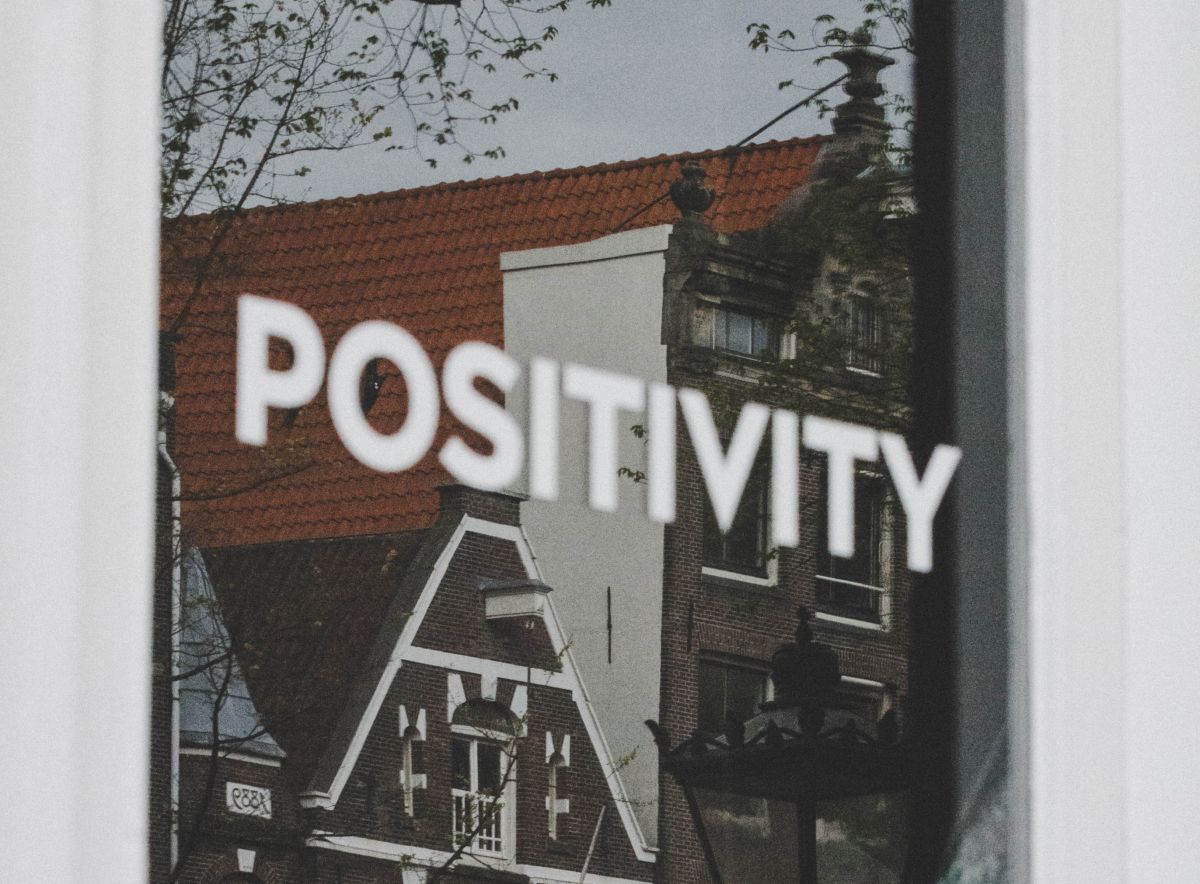
Relentlessly optimistic
It turns out that you can learn from a crisis, whether it is about the history of international cooperation, about a surprisingly obedient society, about justice as a cornerstone, about identity formation or about solidarity. As for the question what disasters teach us about democracy, the answer tends not to be as positive. Democracy often has a hard time during disasters: democratic decision-making is circumvented, transparency is dialled back due to time constraints and control is exercised by only a small group of elite scientists or policymakers. In other words, does a crisis teach us that democracy is no match for a state of emergency? Assistant professor of Public Managment dr. Scott Douglas refused to believe so. He concluded the 'Adapt!' series with a 'relentlessly optimistic view' of how democracy works during a crisis.
While you can just focus on the threats to democracy, I consider it more productive to focus on the opportunities
The general opinion is that democracy does not function in times of crisis, but Douglas argued the opposite: 'While you can just focus on the threats to democracy, I consider it more productive to focus on the opportunities.' In order to focus on these opportunities, he listed examples of past crises which demonstrated that democracy can thrive during adversity. "For example, think of the hiv and AIDS crisis, when tensions were mounting. During this delicate crisis, there was an increasing sense of uncertainty as well as inequality. Among other places, Australia proved that a different approach was possible. This country opted for cooperation with the target group in order to preserve national unity. Without an open democracy, this hugely successful approach would not have worked," Douglas explained.
The question remains whether democracy will also evolve as a result of the coronavirus. Douglas certainly underlined a key principle: hard work and unifying leadership can allow democracy to thrive after a crisis.



